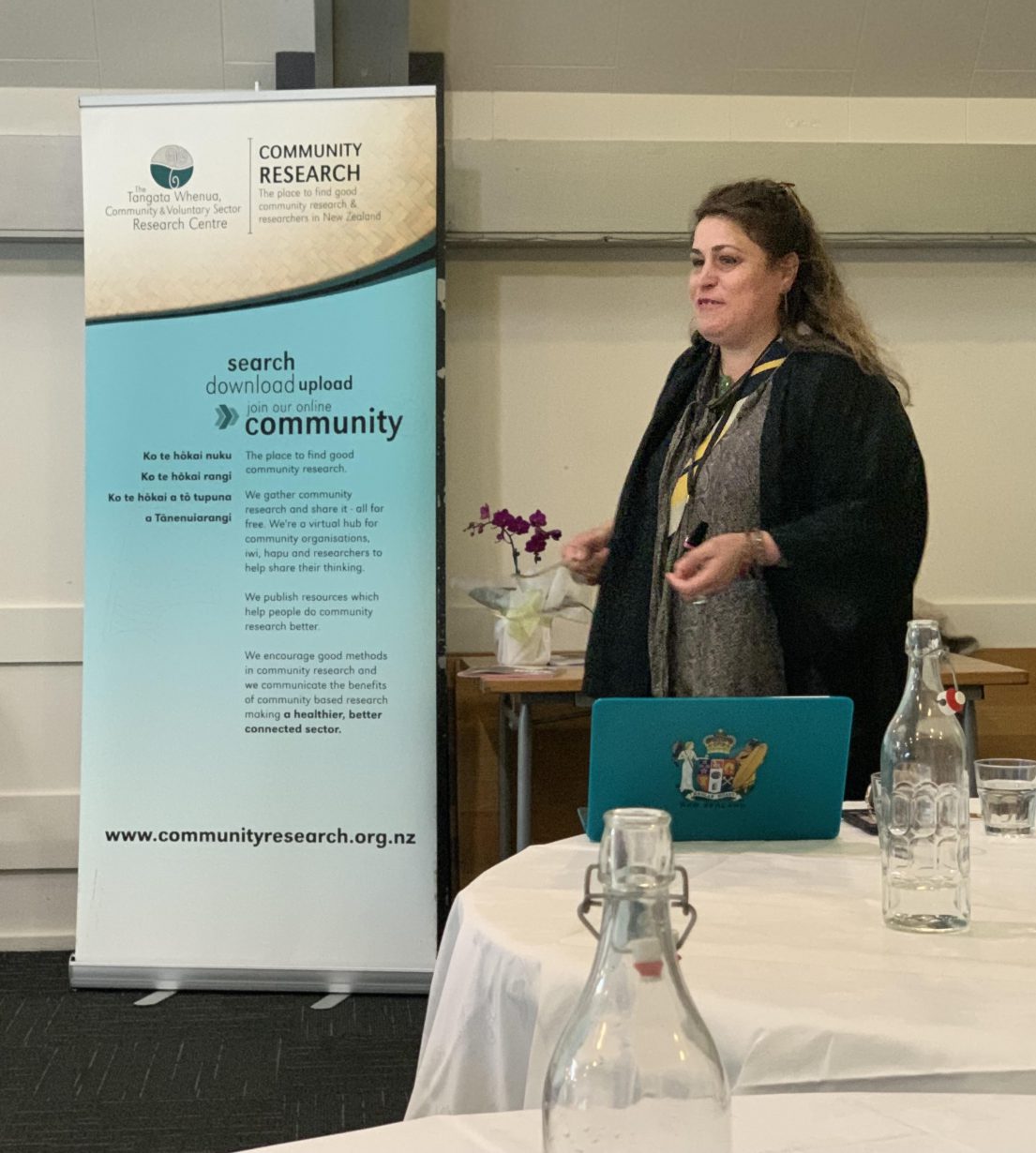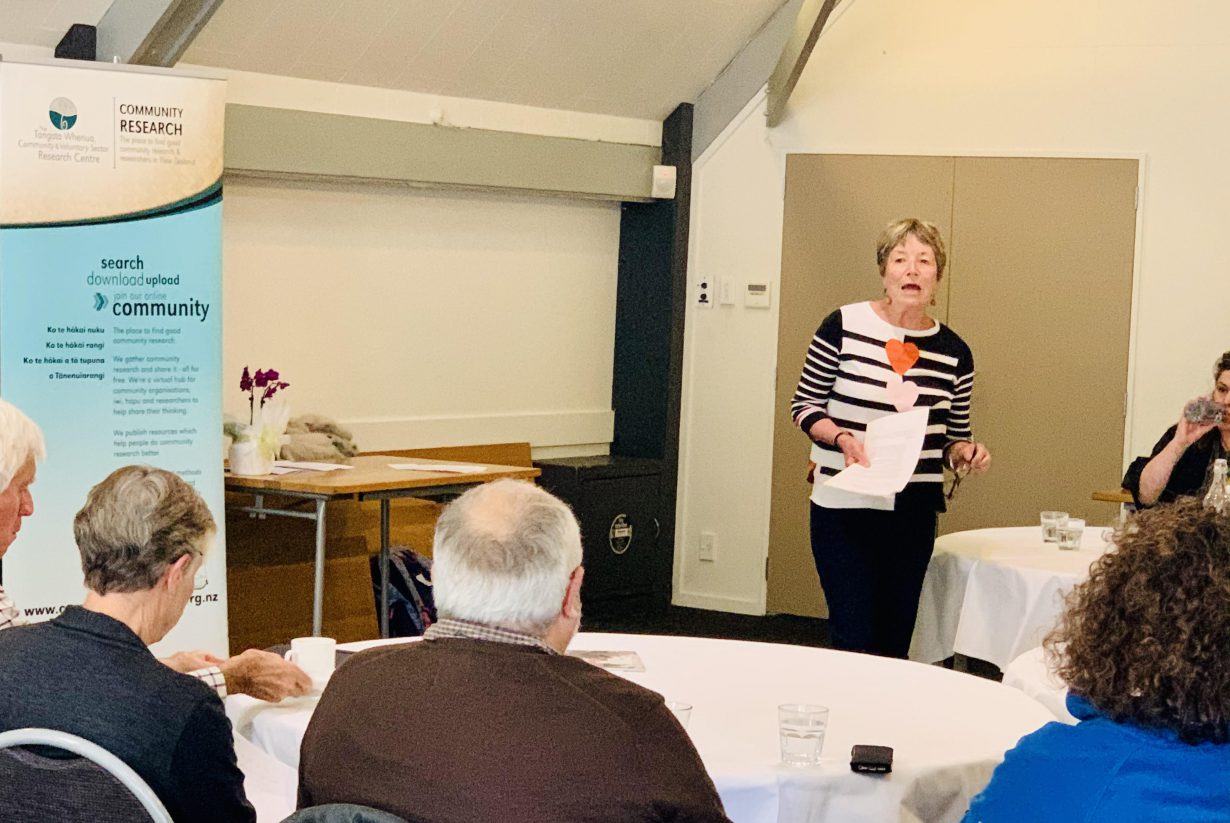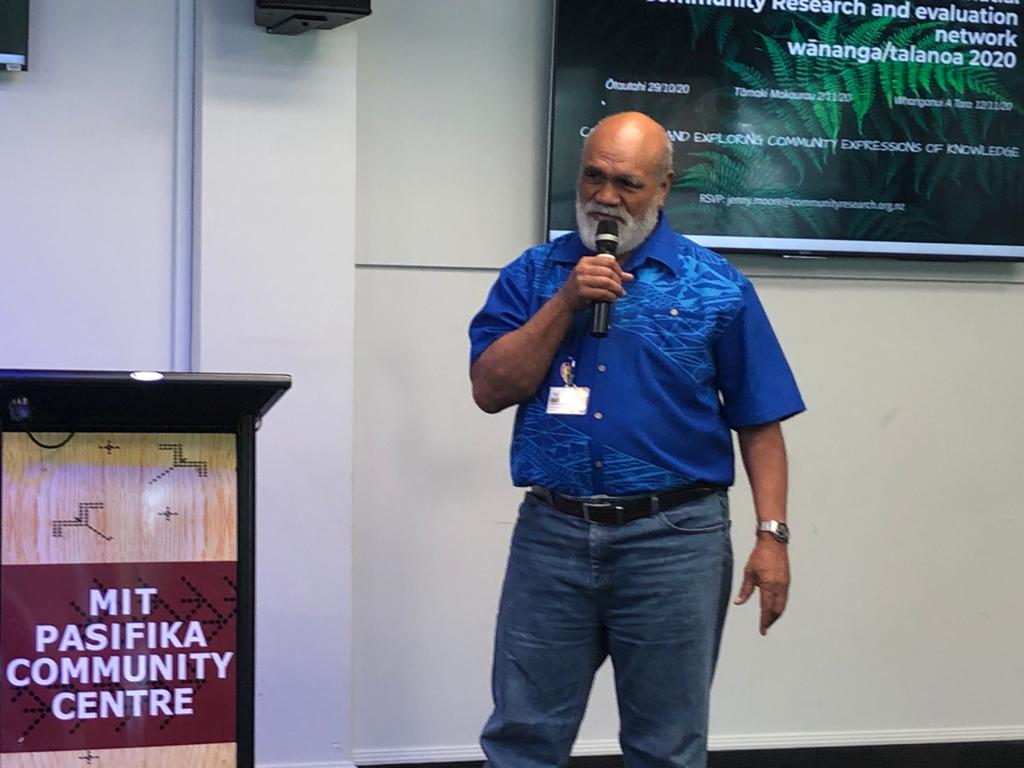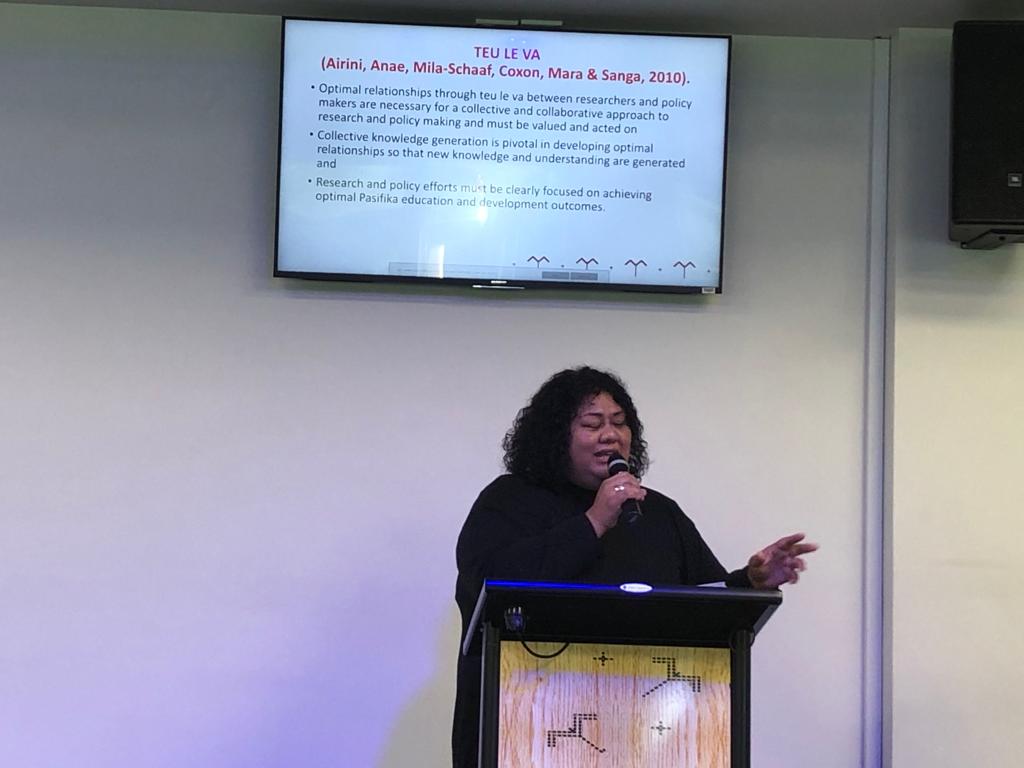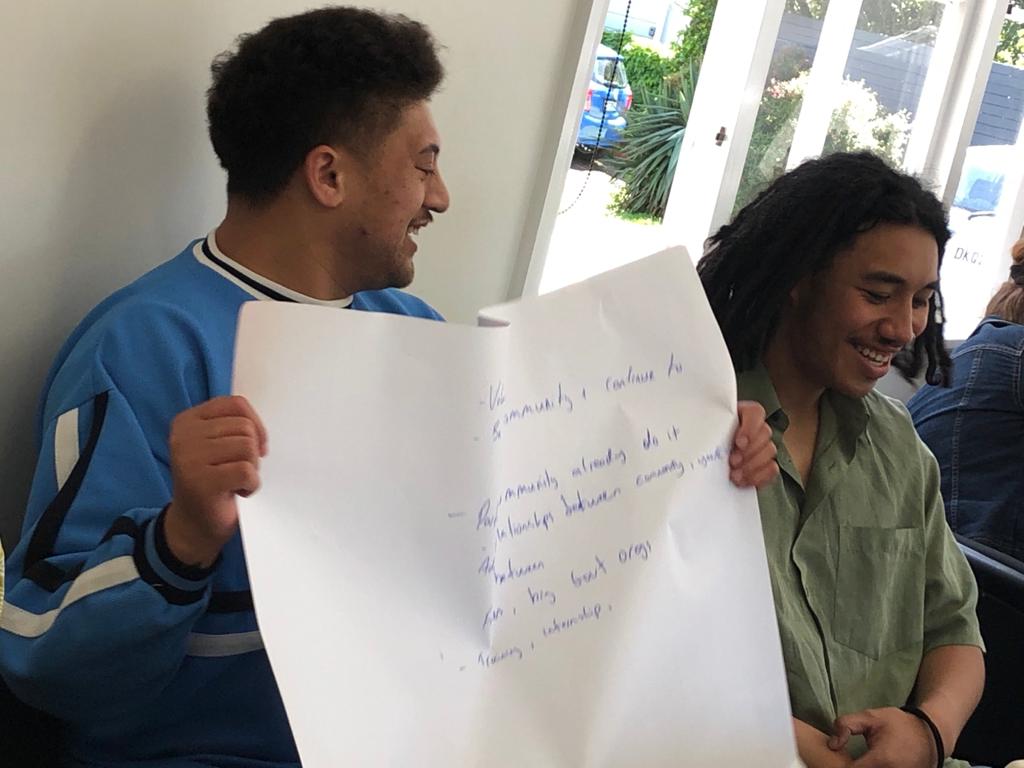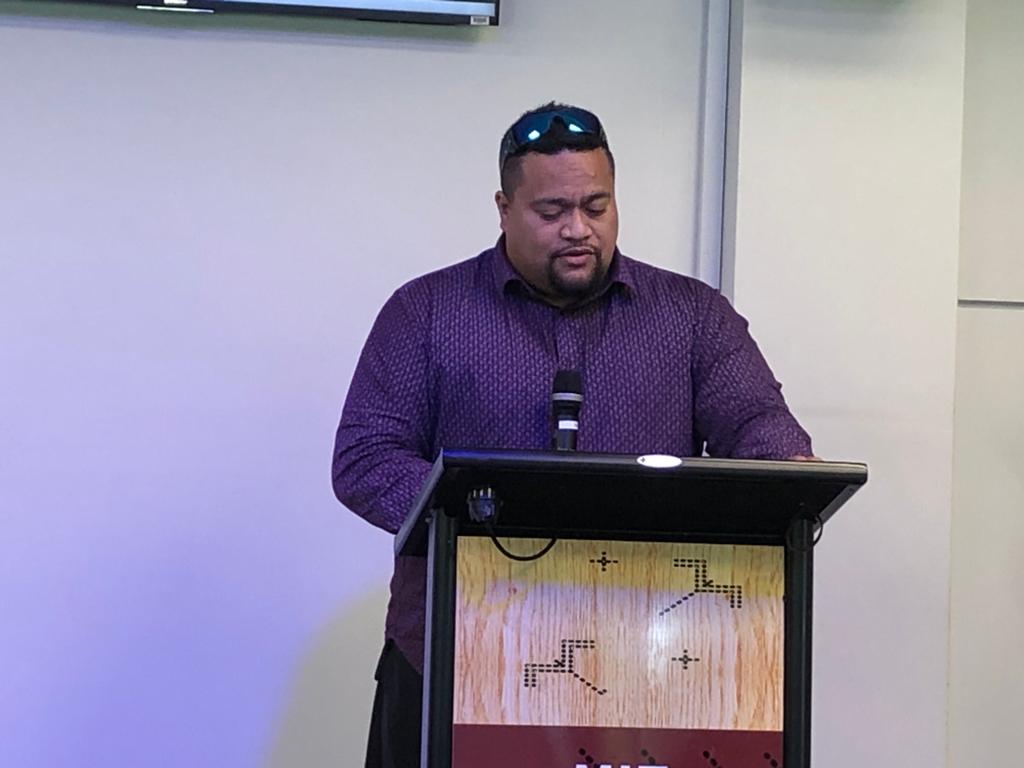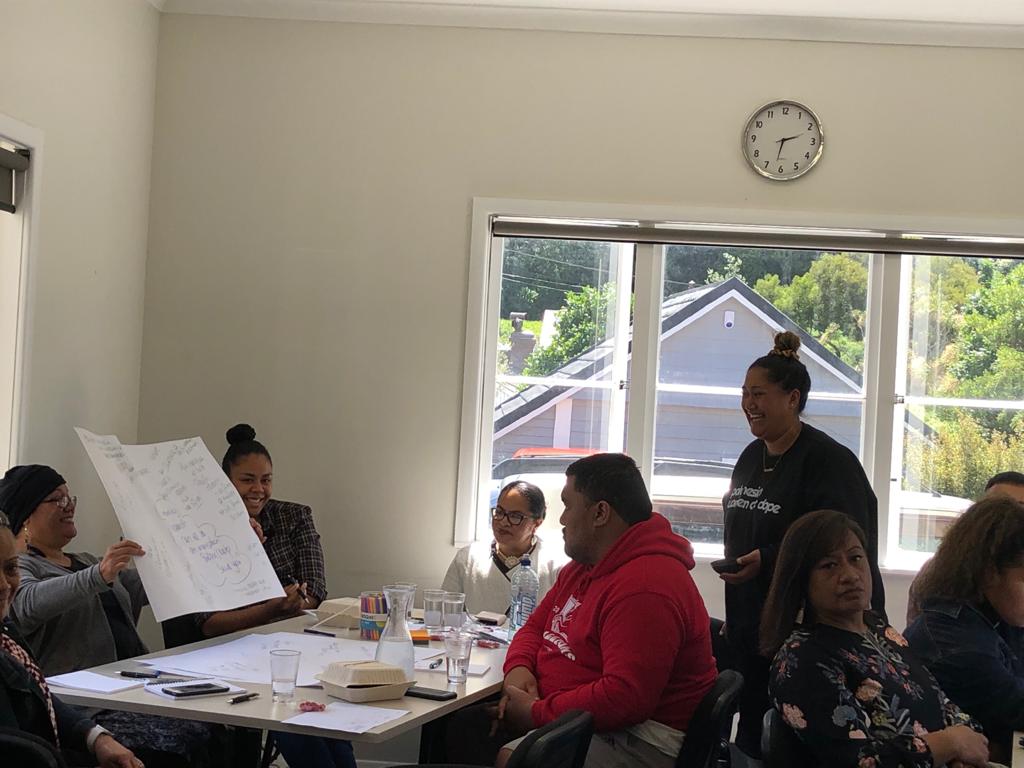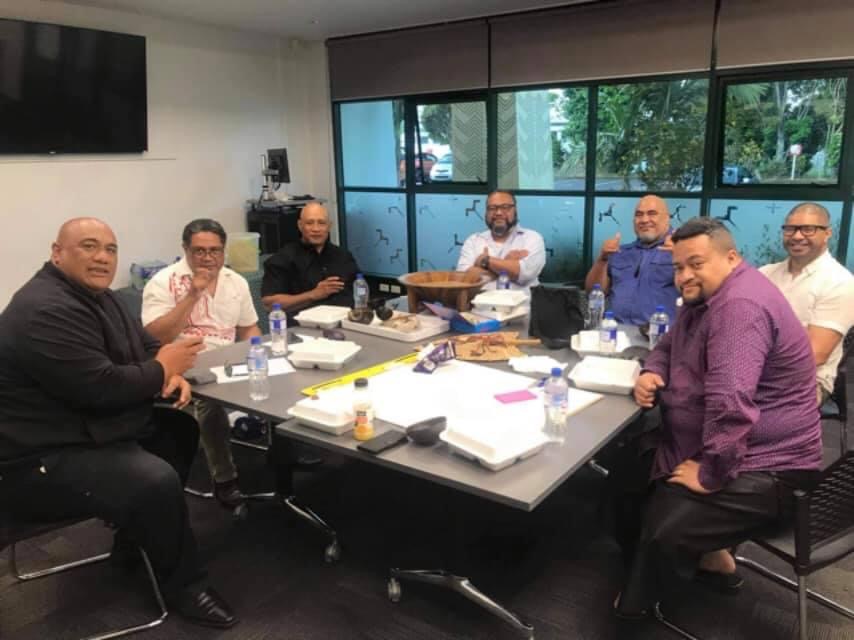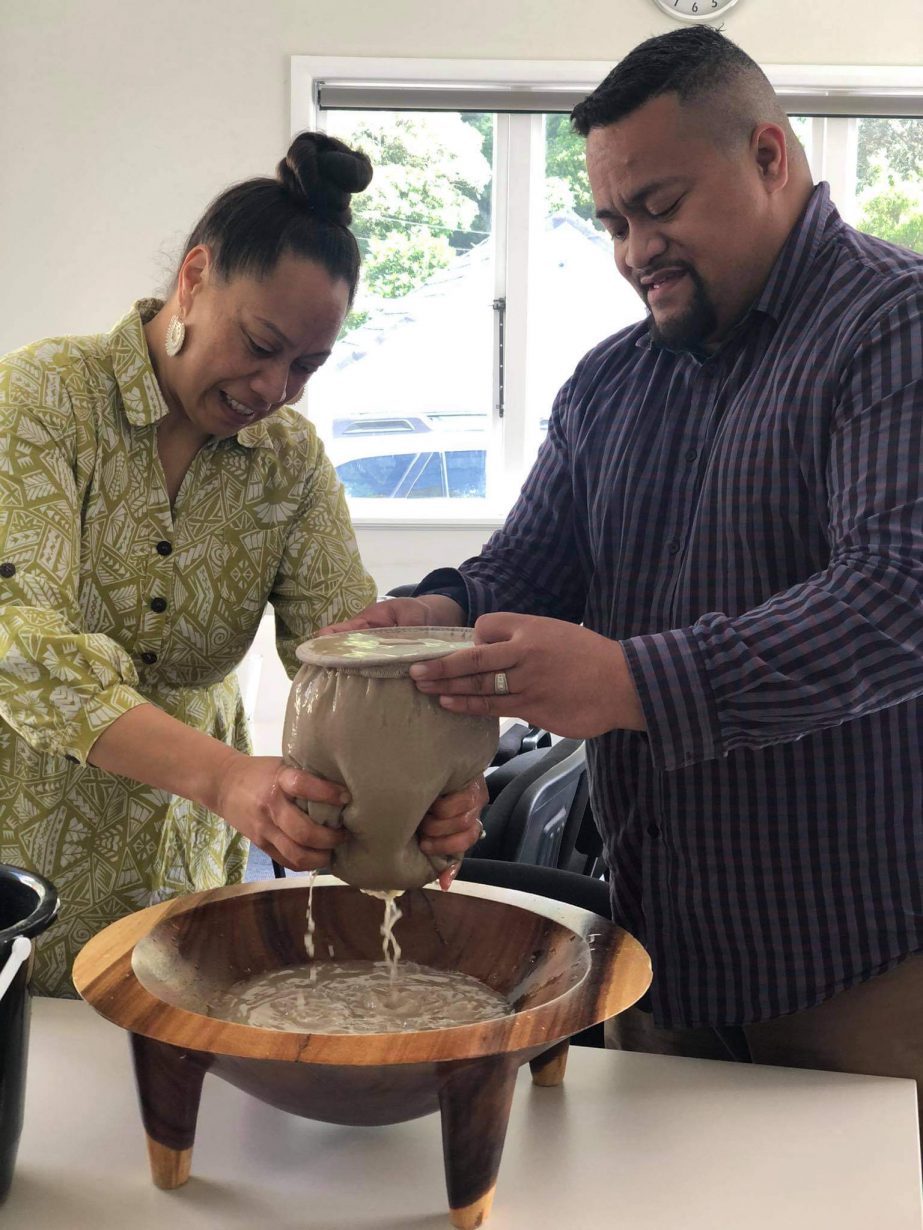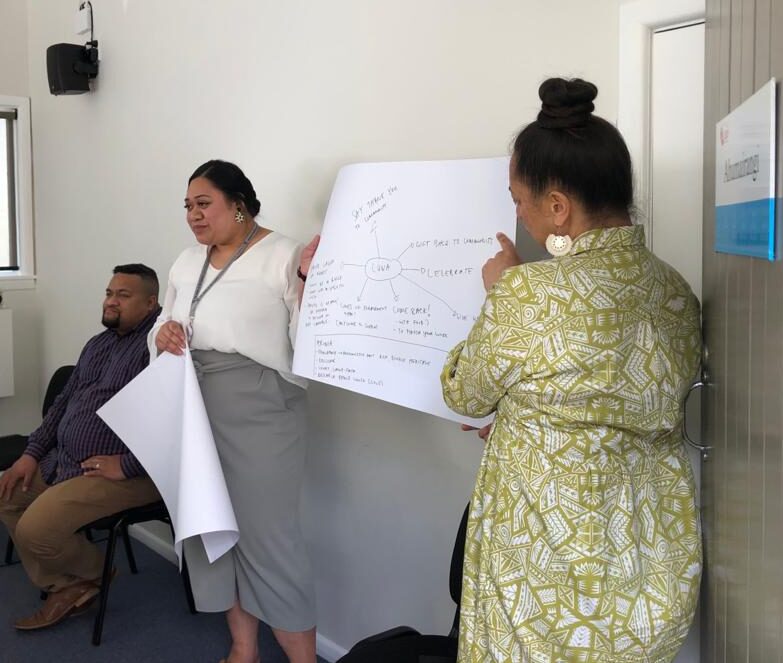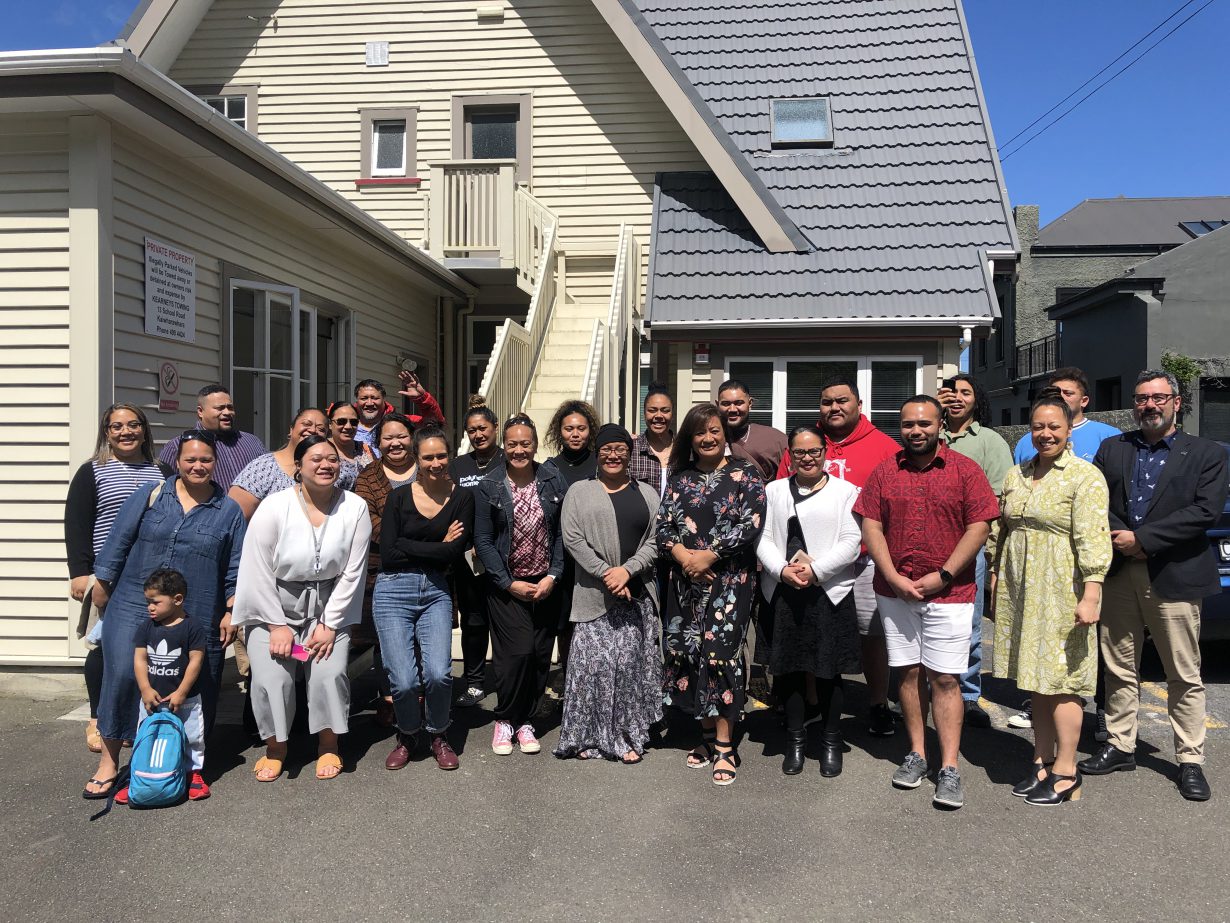Community Research: Connecting and Exploring Community Expressions of Knowledge.
Community Research hosted a series of three researcher/evaluator events in 2020. Kei te mihi nui ki a koutou: our speakers, hosts and everyone who came along to wānanga/talanoa with us.
Ōtautahi – Thurs 29th October 2020
We welcomed Sharon Torstonson, non-profit champion, National Science Deep South Challenge and author of Holding Hope Together to our first Te Auahatia event, held at the Cashmere Club in Ōtautahi. Sharon presented the digital launch of Holding Hope Together, a celebration of the Contribution of the Non Profit Sector in Rebuilding Christchurch Communities. This book was published in 2014 with a limited print run of only 300 copies, and Community Research has partnered with SEWN to digitalise it, so it is now available on our website and can be shared widely.
Thank you to everyone who came along to our Christchurch event, representing a whole host of wonderful community and research organisations. It was great to connect with you.
Resource: Holding Hope Together: Digital Version available here
Pasifika events
Following the Ōtautahi event, Kaitiaki members, Analiese Robertson and Caroline (Ligi) Harris, together with Dr Edmond Fehoko, led two Pacific gatherings in Tāmaki Makaurau (Auckland) and Whanganui-a-Tara (Wellington) having a talanoa (unrestricted discussion) around the kava bowl. It was an opportunity to explore the definition of community research through a Pacific lens, test interest for building an independent network of Pacific researchers and evaluators working in community and making a difference, connect research and evaluation to communities, and to share experiences and start to grow a repository of Pacific knowledge with Community Research. Both events were well attended by Pacific community leaders, researchers and evaluators.
For videos of our Pasifika events, filmed and produced by ACE Aotearoa, click here.
Tāmaki Makaurau – Mon 2nd November
Aiono Manu Fa’aea, (Fasitoo-uta, Fagaloa, Fasitootai, Moata’a, Afega), Senior Pasifika Manager, Manukau Institute of Technology Pasifika Development Office (see her bio below), was our Guest Speaker for our event in Tāmaki Makaurau at MIT Pasifika Community Centre. Aiono prefaced her presentation by referencing understanding of teu le va – repair the relational space and tausi va / tauhi va maintain the relationship space (Airini, Anae, Mila-Schaaf, Coxon, Mara & Sanga, 2010) and the importance of relationships between researchers, community and policy-makers, noting research must be focused on optimal outcomes.
It was great to see so many representatives of the Pasifika community at this event, including researchers, community workers and kava-drinkers. A massive malo ‘aupito to everyone who supported and contributed to the amazing talanoa that took place at the event and for MIT Pasifika Development Office for opening up the space.
Resource: Aiono’s Powerpoint presentation – Understanding Pasifika Cultural Intelligence
Videos: Click here to see videos of Aiono Manu Fa’aea at the event
Te Whanganui A Tara – Thurs 12th November
For our final Te Auahatia event, in Te Whanganui a Tara, Ronji Tanielu, (Sāmoa, Tokelau), Social Policy Analyst at the Salvation Army (see his bio below), gave an inspiring presentation titled Disruptive Advocacy and challenged us to aim for living research that is active, meaningful and used, which takes legitimate voices from local communities to find local solutions to local problems and that leaves a legacy: ‘Better to die trying than die wondering!’
Thank you to everyone who came along and to our wonderful hosts, ACE Aotearoa.
Resource: Ronji’s Powerpoint presentation – Disruptive Advocacy
Videos: Click here to see videos of the Te Whanganui a Tara event.
Kakala Research Framework
The Kakala framework is an indigenous framework of knowledge and wisdom unique to the Tongan process of producing a beautiful kakala or garland (Thaman, 1988; 2007). There are three main processes in forming a kakala, namely toli, tui and luva. The first is toli, picking of the flowers, which maps to the sampling and recruitment phase of research. Toli emphasises the importance of selecting and choosing the most beautiful flowers, in this case selecting eligible participants for in-depth interviews. Secondly, tui, threading together the flowers, symbolizes the collation and analysis of data. Tui underlines the importance of ensuring that each flower is positioned in a beautiful yet organised way. Thus, this process represents the categories and themes identified during the analysis phase of qualitative research. Thirdly, luva, the gifting and giving away of the garland, emphasises the importance of presenting findings in a meaningful way, mindful of the audience. The Kakala framework also highlights the importance of the Tongan worldview, highlighting the Tongan values ‘ofa (love) and reciprocity, and faka’apa’apa (respect) (Thaman, 2007).
For the purpose of the Auckland and Wellington workshops, the indigenous framework of the Kakala was used to capture the understanding of research from a community perspective. These include questions such as “what does preparation (Teu) of research look like from a community perspective?” and what would a the gifting (Luva) look like from a community perspective?”. It was very exciting to see new and innovative ways of understanding research from a community lens.
About Community Research Te Auahatia programme
Event format
Presentation: We had a guest speaker presenting at each event to highlight challenges and opportunities for the sector. See below for details of each of our guest speakers.
Whanaungatanga: the ability to meet and collaborate with other local researchers and evaluators to share professional skills and relationships and to offer assistance to others. There was also the opportunity for attendees to share their individual and collective work, past and present.
Strategic Opportunity: Community Research are keen to hear about how we can better support the capability and capacity of the Māori and Pasifika community research sector. Pasifika events Talanoa and strategise for succession and shared values with application across the sector and with those who commission research and evaluation.
Questions to consider:
- What are your thoughts on establishing a Pasifika evaluation and research association, to support the networking and influence of Pasifika researchers and evaluators across Aotearoa/Moana Nui a Kiwa?
- How can we support emerging evaluators/researchers with qualifications and training?
Background
Community Research Strategic Planning in 2020 identified a number of strategic priorities to connect with and support community researchers and community organisations. The vision of Community Research was affirmed to be Connecting and Exploring Community Expressions of Knowledge.
Purpose
- Improve the accessibility and visibility of community research
- Grow the capability and capacity of the sector especially Māori and Pasifika
- Validate, support, connect and grow Pasifika and Māori research/evaluation communities
- Establish and maintain regional networks and relationships to connect and support community research activities
- Grow and support the Community Research community
- Identify kaiarahi to improve the research uploads and dissemination of community research and evaluation through Community Research communications and social media channels and networks
Locations
The three locations for these events in 2020 were chosen to:
- Connect the kaitaiki leadership and networks in the proposed locations.
- Validate, support, connect and grow Pasifika research/evaluation communities (in Wellington and Auckland), in conjunction with the capability and capacity objectives discussed at the Community Research strategic planning.
- Leverage Community Research capability and connections with board and staff (in Ōtautahi).
These events are supported by the Community Research kaitiaki/board and the Wellington and Auckland events were hosted by two of our board members Caroline (Ligi) Harris and Analiese Robertson.
About the Guest Speakers
Sharon Torstonson
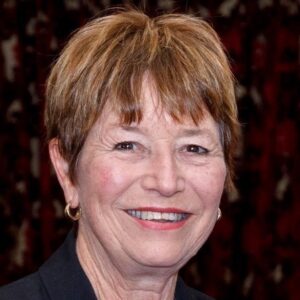
Sharon Torstonson has been immersed in the non-profit sector for over 20 years, working in civic & social organizations. Sharon made a huge contribution in the non-profit sector to community preparation for and response to emergencies and disasters and pulled together the original radio series and book – Holding Hope Together. BA (Hons) focused in Sociology, Education from University of Canterbury. MNZM for services to the community. She is currently providing a non-profit sector perspective in the National Science Deep South Challenge.
Aiono Manu Fa’aea
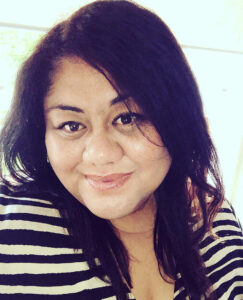
Aiono Manu Fa’aea is a practising ethnomusicologist and educator. “Aiono” is a chief title bestowed on her by her father’s family from the village of Fasito’o-uta in Upolu, Samoa.
From February 2005 to November 2012, she was involved in creating submissions and providing consultation feedback for various policy documents such as the Pasifika Education Plan for the Ministry of Education, the Pacific Languages Framework for the Ministry of Pacific Island Affairs and the Pasifika Strategy for the New Zealand Qualifications Authority, strategic plan for ACE Aotearoa.
In 2019, she was part of the Ministry of Education Gifted Advisory Panel giving advice re: resource packages. In 2020, she was appointed as a member on the Pathways NCEA panel as part of the NCEA Review. She works with educators to support them in their work in raising student achievement, by realising student potential. She is also passionate about connecting, collaborating and championing Pacific peoples in education and in the workplace.
Ronji Tanielu
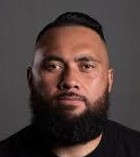
Ronji Tanielu, is of Samoan/Tokelauan heritage and currently works as a Lawyer and Principal Policy Advisor for the Social Policy and Parliamentary Unit of The Salvation Army, working in advocacy and policy around justice reform, addictions services, welfare reform, housing, youth, and children. Ronji’s job is to be as positively disruptive and troublesome as possible to politicians, policy officials and other key decision makers. Ronji would never call himself a researcher or academic but he uses these tools in various justice advocacy projects. These projects include Ronji writing/co-writing: ‘The State of the Nation report’, ‘Covid-19 Social Impact Dashboards’, ‘State of Our Communities Report’ and ‘The housing crisis facing Pasifika people in Aotearoa’ among others.

